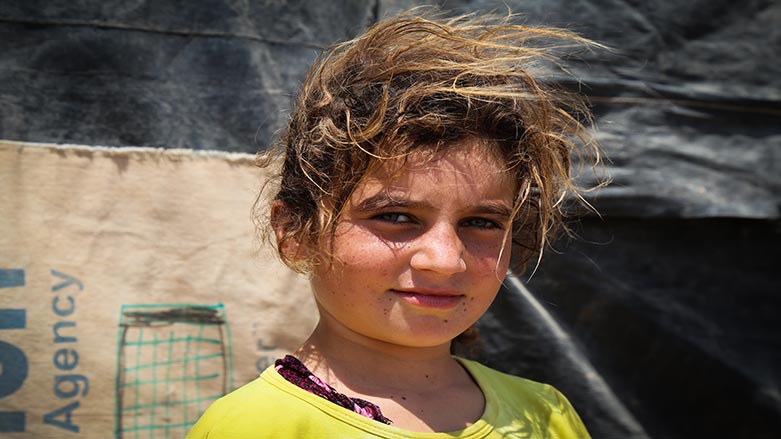Demonized refugees need a humanized face

Toronto, CANADA (K24) – A Kurdish activist and journalist’s photo exhibition of refugees and Internally Displaced Persons (IDPs) raised money and awareness in Toronto regarding the forgotten victims of the Islamic State (IS) currently residing in Kurdistan Region.
Hajir Sharifi’s heart-wrenching photographs of displaced persons in Qushtapa Camp near Erbil, Arbat Camp near Sulaimani, and other camps offered a fresh angle on the lives of recent victims.
Canadians visited the “4 Days 4 Syria” event held at York University where Sharifi’s photos were presented as he gave a presentation and answered questions. The $4,000 Sharifi raised in the auctions goes to the refugees in Kurdistan Region and Jordan.
“Here [North-America], the mainstream depiction of refugees is inaccurate and incomplete. People deserve seeing something other than the fear-mongering image that is loaded with racist and xenophobic sentiments,” Sharifi told K24.
A Human Rights and Philosophy student at York University originally from the village of Kanicharmoo near Diwandara, Rojhalat (Iranian Kurdistan), Sharifi shared stories of his observations from Sinjar (Shingal) mountain, Domiz Camp, and various other refugee camps throughout Kurdistan Region.
“The refugees that I met were desperately looking for safety; they’re struggling for their next meal in those camps, and there is no end to their suffering,” Sharifi said.
Currently, over 1.8 million Syrian, Ezidi (Yezidi), and Iraqis reside in Kurdistan Region out of a total population of some six million. The war with IS and dropping international oil prices are among many reasons Kurdistan Region is struggling to meet the needs of the displaced it is hosting.
“Compared to the Syrian refugee crisis, theirs [Ezidi and Iraqi] might be new, but they are suffering from this vicious war. Their pain has not caught the world’s attention because there is no longer a dictator in Iraq that this humanitarian crisis can be used against as political leverage,” Sharifi said.
York University librarian Kalina Grewal, one of the organizers for the presentation said the event allowed the audience “to respond with curiosity about the crisis and with generosity.”
“While he took emotionally destabilizing photographs [e.g. of severely injured or ill persons], Mr. Sharifi felt that those that showed these individuals in moments of humanity—engaged in conversation, playing, or day-to-day activities—would inspire our audience to action,” Grewal told K24.
“Mr. Sharifi urged us to demand that our political leaders examine their policies and actions in the Middle East and that they find ways to collaborate to create the conditions for long-lasting peace,” Grewal added.
Dalubuhle Ndlovu, Research Office Assistant at the Office of the Dean of the Liberal Arts and Professional Studies, told K24, “The exhibition sparked critical dialogue amongst York community members…Sharifi’s photographs allow us to gaze into the hardships, challenges, and triumphs experienced by Iraqi and Syrian refugees.”
Sharifi encouraged the audience not to remain silent in the face of atrocities unfolding across the world.
“We need to remember that our silence in this part of the world alongside with the madness of tyrants and religious fundamentalists will add to ongoing chaos, despair, death, and destruction in the Middle East,” Sharifi concluded.
Reporting by Ava Homa
Editing by Karzan Sulaivany and Benjamin Kweskin




